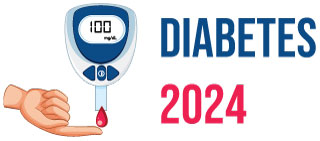Insulin Action/Molecular Metabolism
Insulin action and molecular metabolism are fundamental aspects of diabetes pathophysiology, offering valuable insights into disease mechanisms and potential therapeutic targets. Insulin, a key hormone produced by pancreatic beta cells, plays a central role in regulating glucose metabolism in the body. Upon binding to its receptor, insulin triggers a cascade of molecular events that facilitate glucose uptake into cells, promote glycogen synthesis in the liver and muscles, and inhibit gluconeogenesis. Disruptions in insulin signaling pathways can lead to insulin resistance, a hallmark of type 2 diabetes, characterized by impaired glucose uptake and dysregulated lipid metabolism.
Keywords: insulin action, molecular metabolism, glucose metabolism, insulin resistance, signaling pathways, metabolic homeostasis, therapeutic targets, personalized approaches, diabetes prevention.
Related Sessions
Tags
- Diabetes 2024 Conference
- Diabetes 2024 Events
- Diabetes Meetings
- Diabetes Hybrid Event 2024
- Diabetes Event in Las Vegas
- Diabetes Event in USA
- Diabetes Event in Las Vegas 2024
- Diabetes Summit
- Diabetes Summit 2024
- Diabetes Webinar
- Diabetes Webinar 2024
- Upcoming Diabetes Event
- Endocrinology Conferences
- Endocrinology Conferences 2024
- Endocrinology Events
- Endocrinology Events 2024
- Endocrinology Meetings
- Endocrinology Hybrid Event 2024
- Endocrinology Event in USA
- Endocrinology Event in Las Vegas
- Endocrinology Event in Las Vegas 2024
- Endocrinology Summit
- Endocrinology Summit 2024
- Endocrinology Webinar
- Endocrinology Webinar 2024
- Upcoming Endocrinology Event
